The term "all-inclusive" is widely used in the travel industry, often conjuring images of carefree holidays where one price covers all aspects of the trip. Yet, the interpretation of what "all-inclusive" actually entails can vary significantly, leading to potential misunderstandings between consumers and travel companies. In the context of the UK's Package Travel and Linked Travel Arrangements Regulations 2018, it's essential to understand whether a travel company can promote a trip as "all-inclusive" if certain activities incur additional charges.
The concept of "all-inclusive" typically encompasses transportation, accommodation, food, drinks, and various activities, suggesting that travellers won't face unexpected costs on their holiday. However, the degree of inclusivity offered can vary, particularly with regard to activities and excursions. Some travel companies may choose to limit the all-inclusive offer to include only certain fundamental components, while designating specific premium activities or experiences as add-ons that require extra payment.
Under the regulations, travel companies are obliged to provide consumers with clear and accurate information about the nature of the package being sold. This means that if a holiday is marketed as "all-inclusive", companies must explicitly outline what is included in the price and what is not. It is considered a misleading commercial practice if the term "all-inclusive" is used to describe a package without properly detailing exclusions or necessary additional costs.
The key to whether a holiday can be labeled "all-inclusive" depends on the transparency and adequacy of the information provided by the travel company. Consumers must be able to understand exactly what they are purchasing and should not be led to assume that everything is covered when, in fact, it is not. The specific details, such as which activities are included and which are subject to extra charges, should be clearly stated in pre-contractual information.
In practice, while some level of additional charges for niche or premium activities might be acceptable, travel companies should ensure that the core elements often expected in an all-inclusive package are genuinely included in the base price. This includes accommodation, meals, drinks, and a reasonable range of activities and entertainment.
In conclusion, a travel company can indeed advertise a trip as "all-inclusive", even if certain activities incur an additional cost, provided they are transparent and clear about these extras. Such disclosure helps to avoid any accusations of misleading advertising and ensures consumers can make fully informed decisions about their holiday purchases. This transparency not only complies with the Package Travel Regulations but also enhances trust and satisfaction among travellers, reinforcing customer confidence in the travel industry.









.svg)





